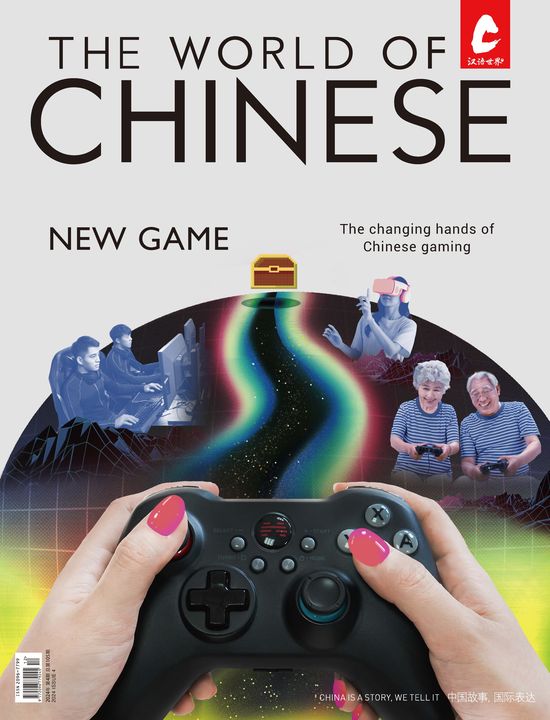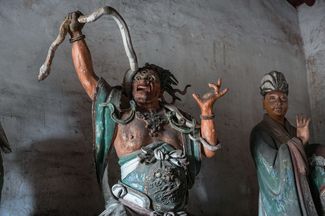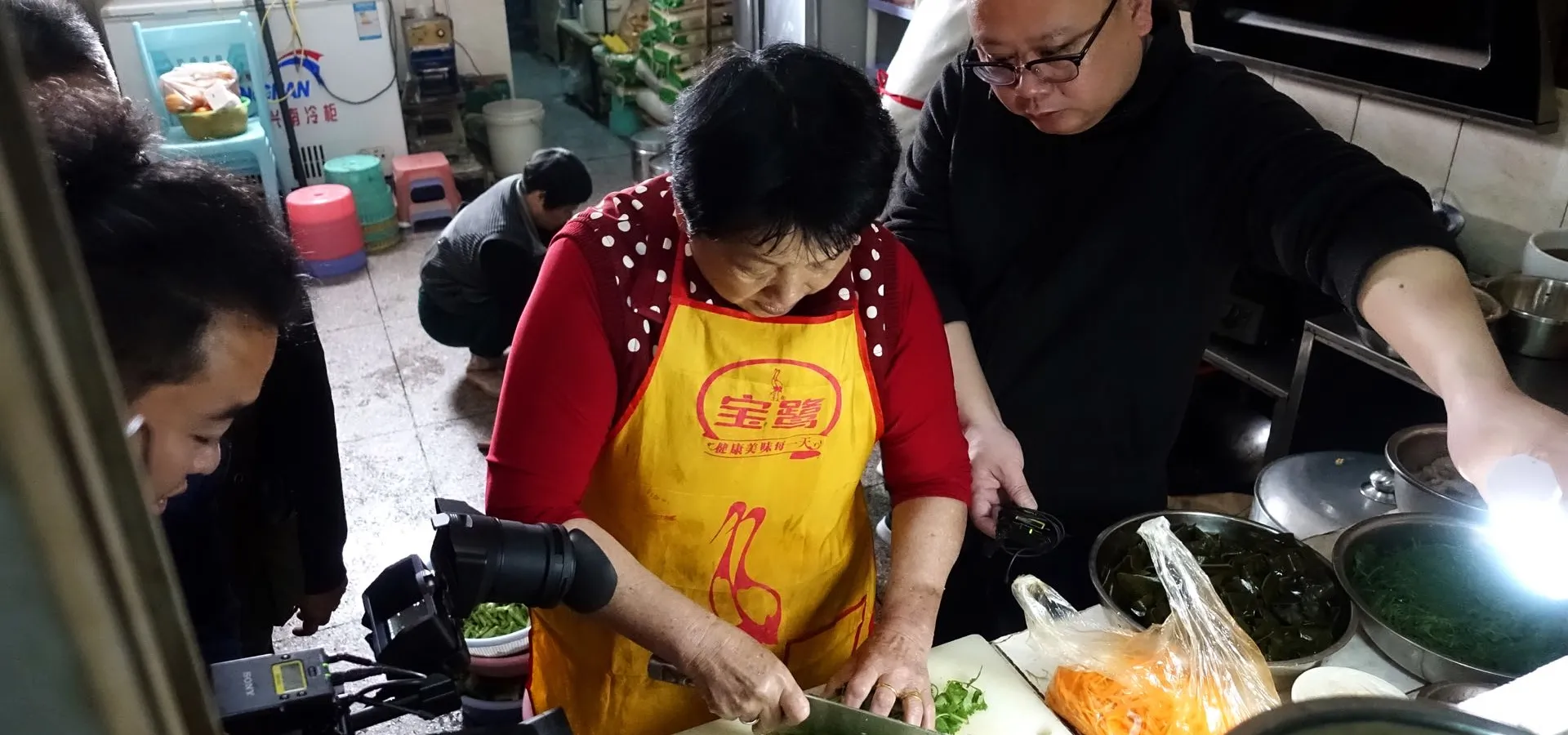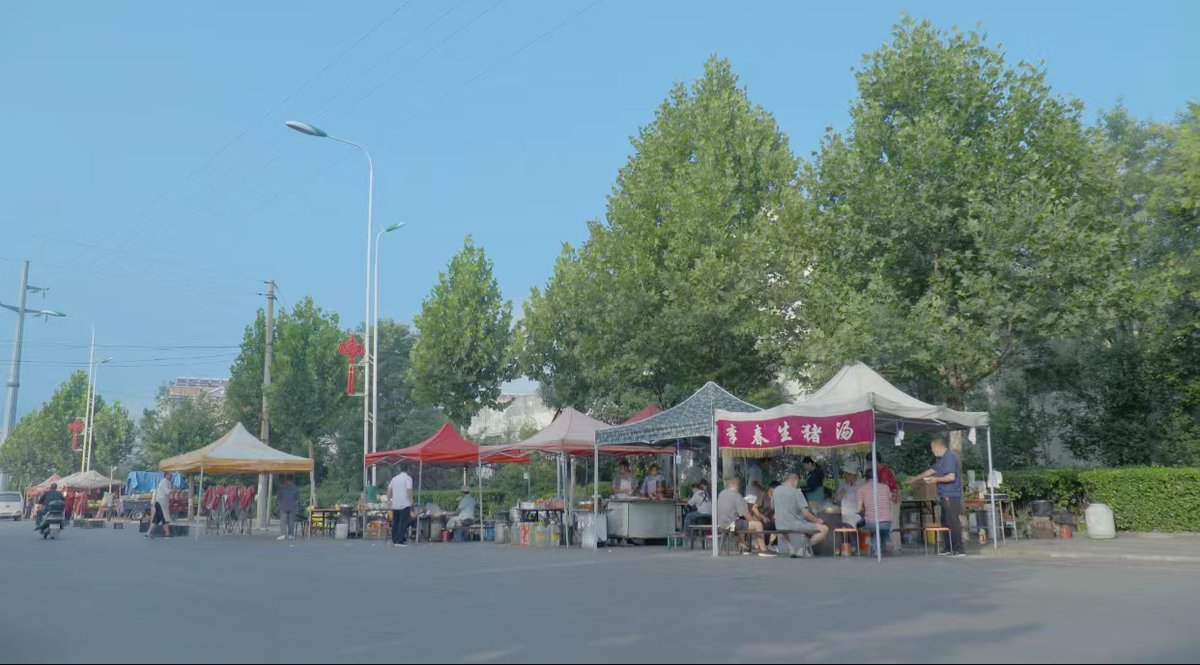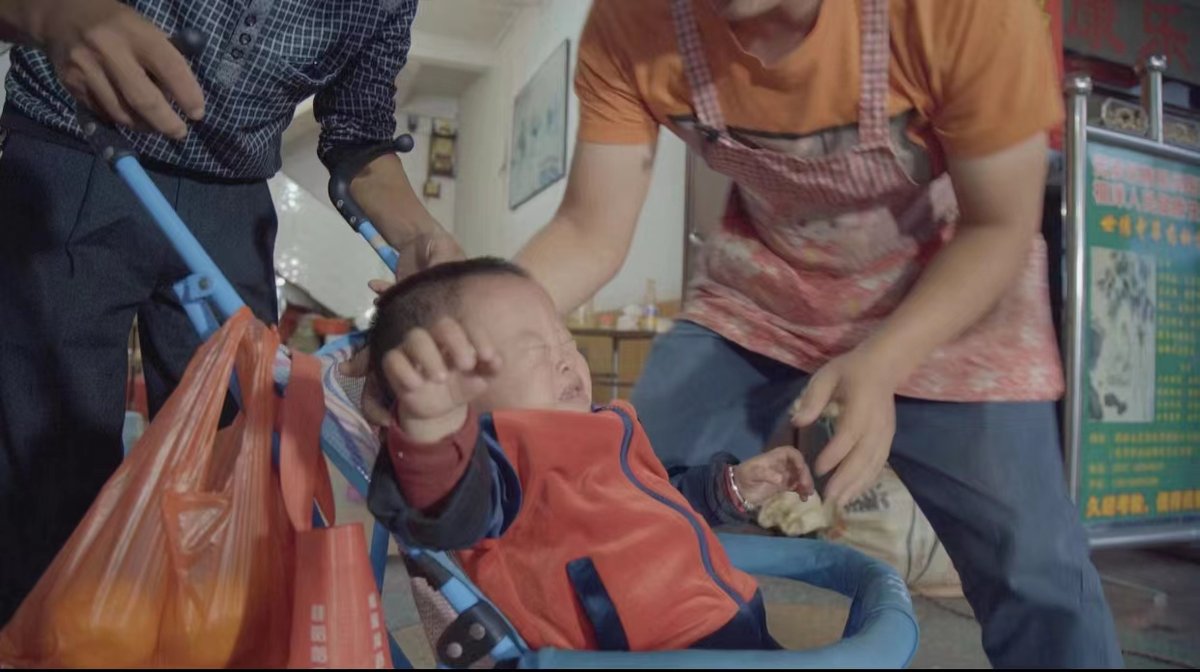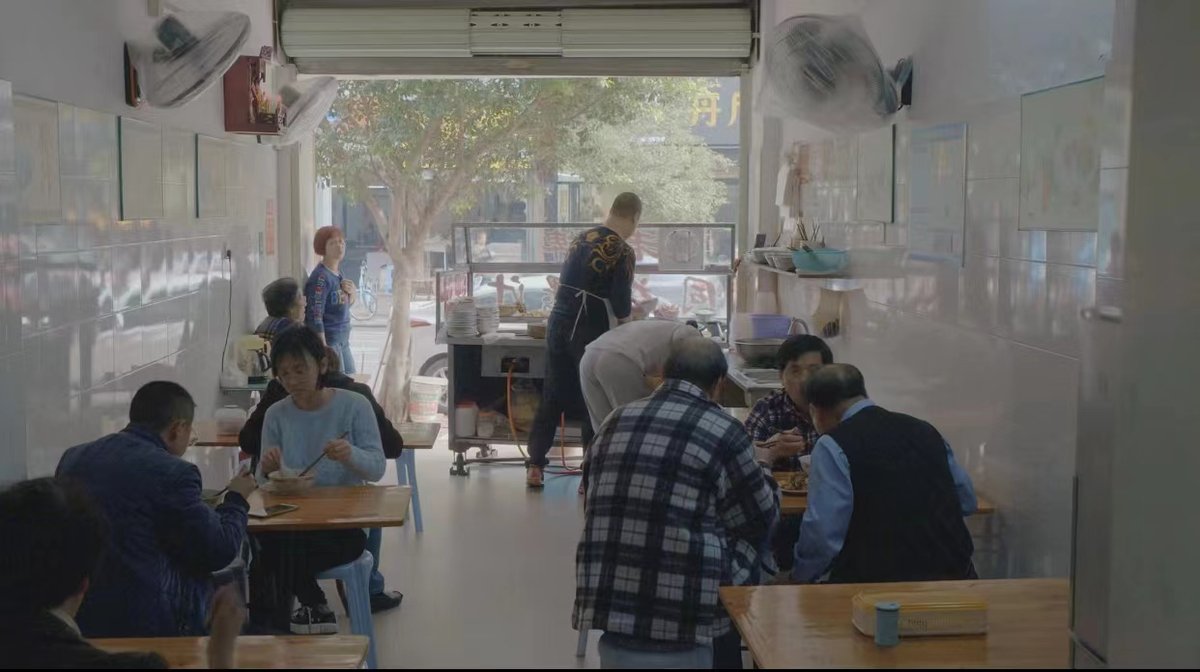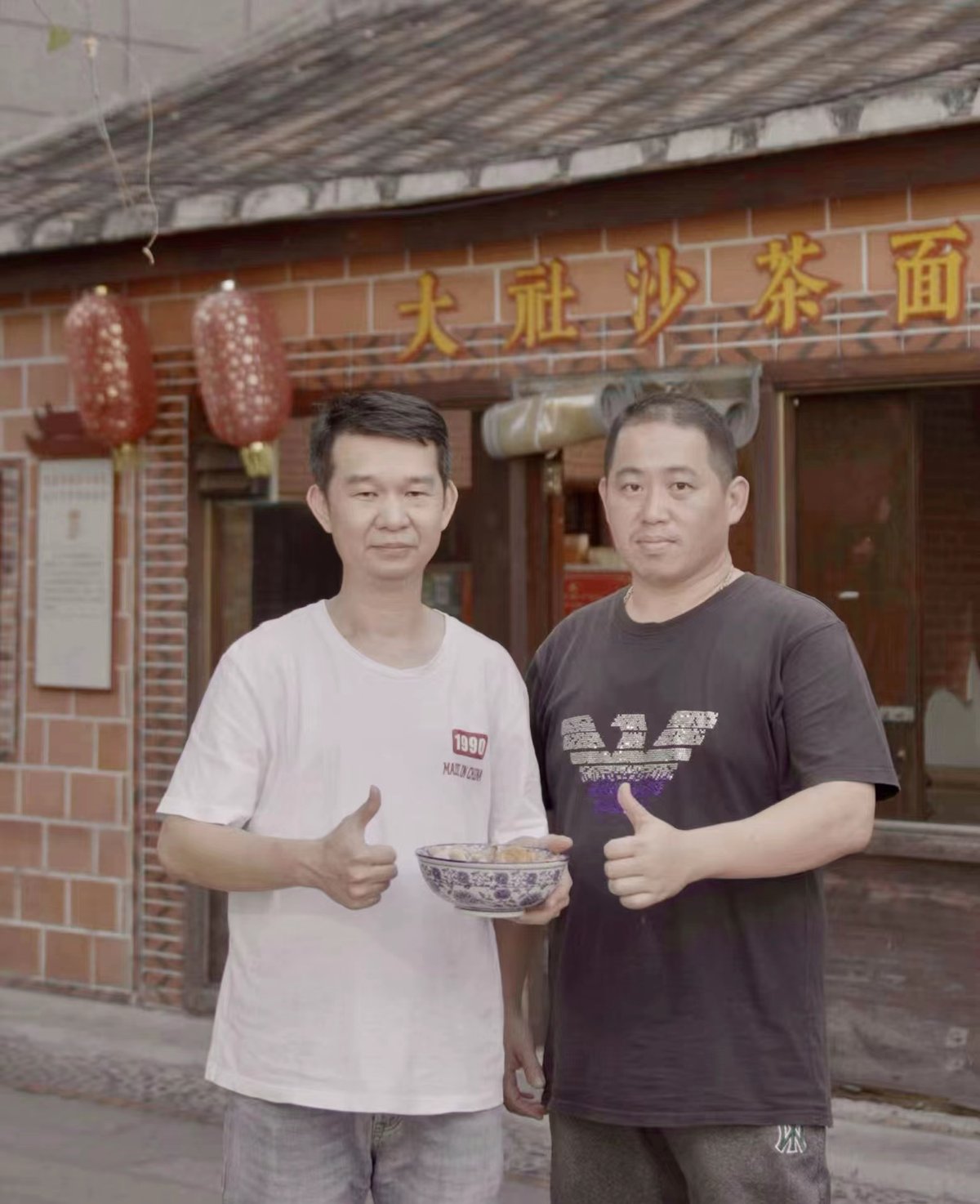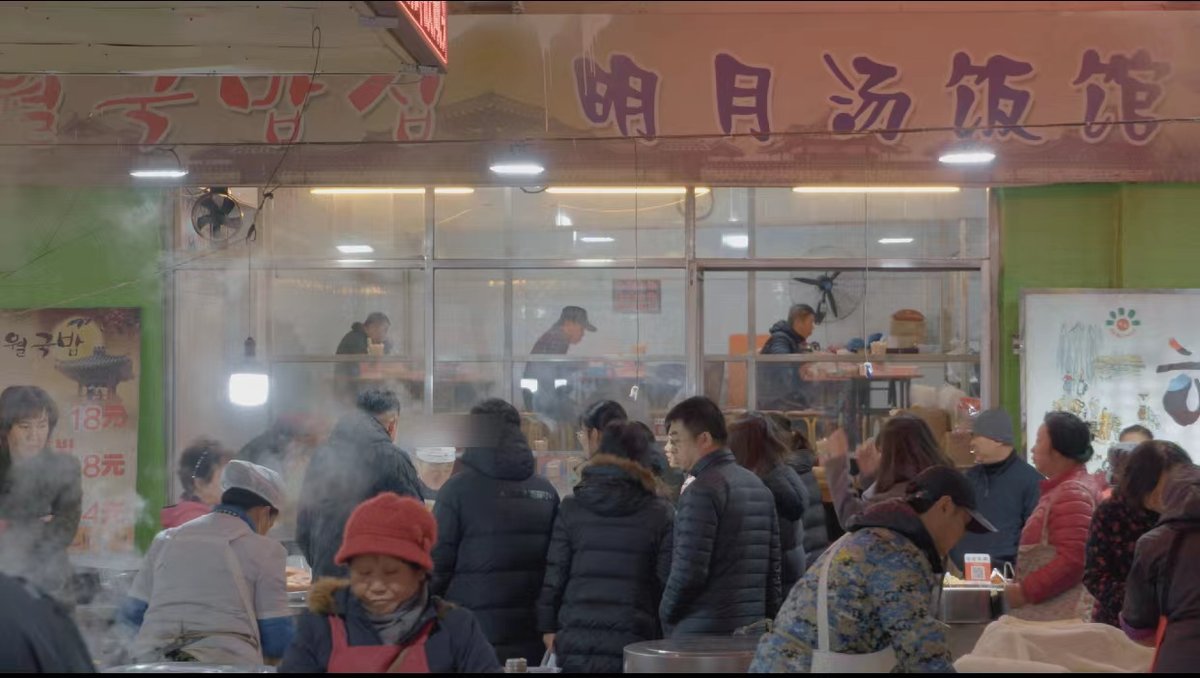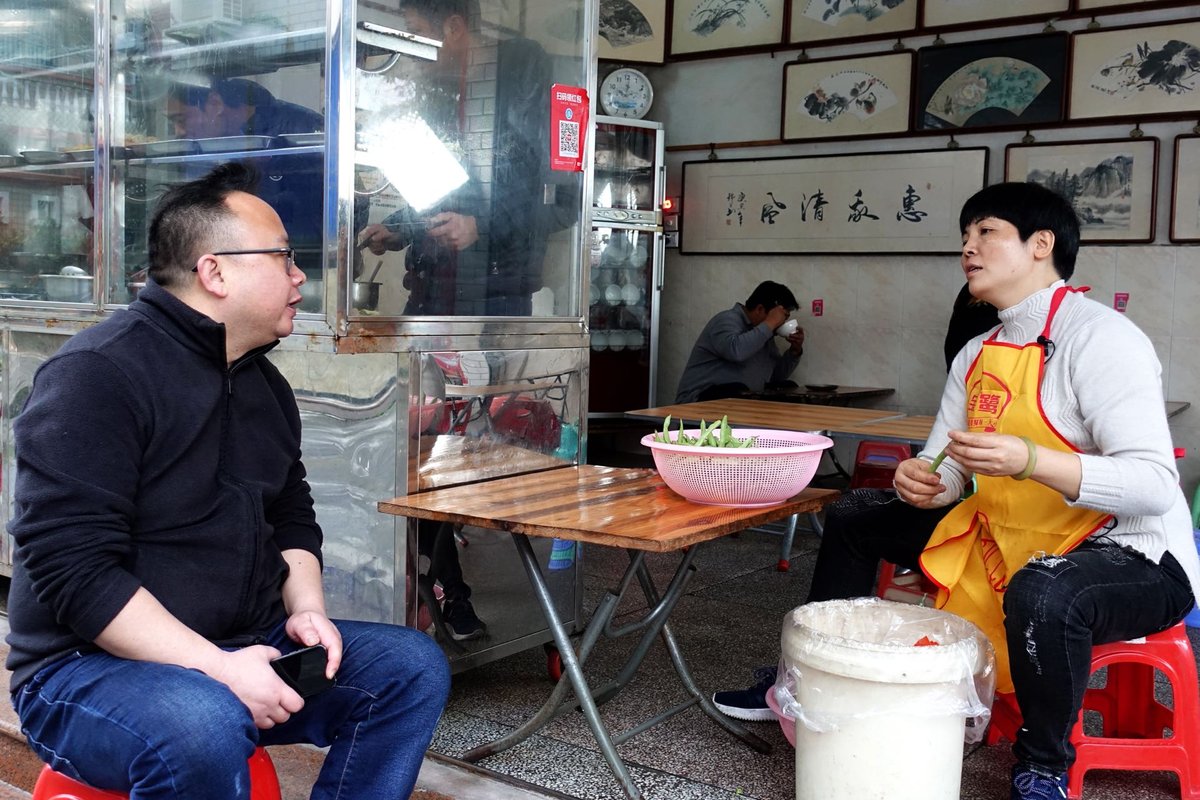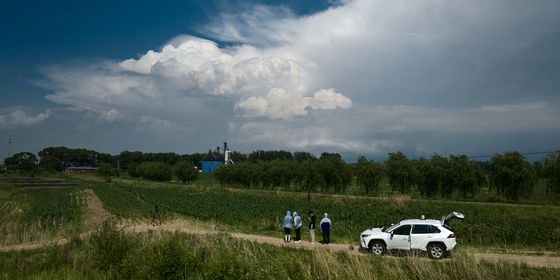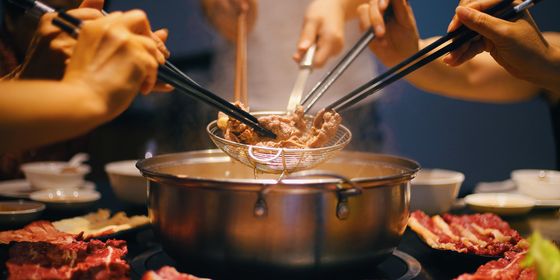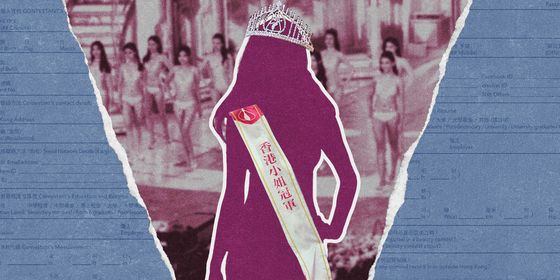A TV director traveled all around China filming traditional breakfasts, and became a morning meal convert in the process
Hi, I’m Chen Shi, the producer of Story FM. Our podcast today is all about the ongoing documentary series Breakfast in China, which has aired over 100 episodes and counting.
I tend to sleep in and skip breakfast, so I miss out on those puffs of steam coming out from breakfast shops early in the morning. Breakfast in China is my chance to peek at this morning world. What’s more, with the pandemic curbing pretty much any traveling over the past few years, the series doubles as a “travel show,” introducing me to plenty of ordinary folks making honest livings all over China.
Our narrator today is none other than the director of Breakfast in China himself, Wang Shengzhi, who chatted with me from Fujian on a November afternoon. Don’t worry if you’re not acquainted with the show; after all, breakfast is a familiar topic for everyone. Here, Wang recollects his experiences after shooting over 100 breakfast stalls.
-1-
An invitation to breakfast
Director Wang: My name is Wang Shengzhi, I’m 48 years old and I work for Fujian TV Station. Because some of my past works suddenly gained quite a lot of attention from the public, I started to see myself as a documentary director.
Chen Shi: Hi, Director Wang. Welcome to Story FM and congrats on Breakfast in China getting a fourth season! Let’s get talking about breakfast—the least conspicuous of our three meals each day. We’re often all about meeting with friends over dinner, lunch, or even afternoon tea, but rarely do we ever make breakfast dates. So tell us, when did you start paying attention to breakfast?
Wang: You know, like all young people I used to think I could do without breakfast and just spend a little more time in bed before rushing to work. That went on until some seven or eight years ago, when a business trip with author Shu Kuo-chih took me to a small village in Heping, Yunnan province. Mr. Shu was in his sixties, so his schedule was different to mine back then. Most notably, breakfast was his most important meal of the day.
Before Mr. Shu went to bed each night he would invite us to have breakfast together the next day. For the first couple days, I politely refused. “Goodness, no need, Mr. Shu. You just come by tomorrow, I’ll sort myself out. All we need is a time to meet the next day, or we can just agree to set off together from wherever, really.”
However, soon enough I got a little embarrassed at refusing. After all, I admired Mr. Shu as an author and he was my senior. Eventually, on the third day, we met for breakfast.
Story FM: Shu is a writer from Taiwan with a serious zest for life. Liang Wendao dubbed him “Taiwan’s No. 1 Prose Master,” and he’s also written a series of books on food, such as Taipei Snack Notes and Frugal Eats. With titles like these, you can tell they aren’t about fine dining. On the contrary, he’s always focusing on humble, unassuming menu items like sesame seed cakes, fried dough sticks, egg-fried rice, and fried buns. He could easily turn a small glass of sugarcane juice into one of his articles.
People often ask Shu: “There are so many snack stalls in any city; how can you possibly choose which one to write about?” His answer is simple; he just visits whichever restaurant he fancies. He never relies on food reviews, he uses his own intuition and just walks into whichever restaurant looks promising.
Chen: Did you and Shu use that same rule of thumb for your breakfast dates? What kind of places did you end up finding?
Wang: Ah, the old man really didn’t need much sleep. He’d go to bed late, wake up early, and walk the morning away in his quest for the perfect breakfast spot.
I was very impressed with one of our findings. It was this street stall selling rice noodles that we’d first found at the corner of the village, before it moved to seek shelter on a rainy day. I could see the steam from two boiling pots—one for the broth, one for the rice noodles—rising from the stall’s new spot beneath a tree. Leaning against a nearby wall, scores of customers just held their bowls and slurped away.
That sure was a no-frills place. No gimmicks, no chatter, no noises from air conditioning units or whatever that you find in most restaurants these days. All you could hear was the constant slurping from customers. I thought, we really look like animals when we lose ourselves in the act of eating. We bury our heads in our meals, pecking at our feed together like a flock of hens; we pick up some bone like a puppy and gnaw at it away from the rest of the litter.
That day I finished my breakfast in a hurry and stepped off to the side for a smoke. While I was at it, I looked at Mr. Shu polishing off his own bowl. He was in no rush, that much I could tell from the 15 minutes it took him to finish.
That’s when it finally dawned on me—Mr. Shu didn’t need a breakfast partner, he just wanted to show me the importance of breakfast. That first bowl of food in the morning represents a brand-new start after the chaos of the day before. Once you’ve eaten it’s time to get going, but breakfast can give you the courage you need to raise your chin and seize the day!
-2-
No better flavor than reality
Chen: So, at that time you weren’t working on Breakfast in China just yet?
Wang: No, not yet. About a year after our trip, Mr. Shu shot me an email with an idea—how about I shoot a series on breakfasts in China, for all those commuters on buses and subways that usually skip the first meal of the day?
However, when the time came to shoot samples for the project, well it was no cakewalk. I’d done all this preliminary research on how to shoot food—the right composition, light, and angles—and yet I wasn’t satisfied with the final editing. Would Breakfast in China really just be about eating breakfast?
Chen: You told me that you drew inspiration from food shows at this stage of your project, however I noticed you didn’t mention A Bite of China, the food documentary that was all the rage at the time.
Wang: A Bite of China was the ultimate classic. A documentary on the intersection of nature, land, food, and the people who make it—it really was a reference for me. And you know, had I been 10 years younger, maybe I could have aimed at something like that. But I was the age I was, and I was also aware of my strengths just as much as I knew my limitations. Studying food in depth isn’t really my forte. Instead, I am pretty good at capturing those fleeting moments of daily life.
I’m fascinated by everyday life. The trifles of our ordinary lives may seem entirely disconnected from big historical trends, but they’re exactly what I want to record and document. Breakfast food is a simple affair, it doesn’t require deep investigation. Rice porridge is rice porridge. Fried dough sticks are fried dough sticks. That’s about it. Breakfast staples like these can’t possibly double as tools to approach some earth-shattering story nor any profound principles. However, they stand for a life that everyone is familiar with. So, what’s behind this?
The first shop I photographed was a taro dumpling breakfast shop in Fushi town, Yongding district, Fujian province, run by a guy named Ah Bing with the help of his wife. Their shop was located downstairs at the train station, and they would cook breakfast and lunch together to maximize profit.
Later, in the process of editing the footage, there was this clip that we had to leave out of the final cut. In the frame, Ah Bing’s mom is bringing the couple’s one-year-old toddler into the store at noon. The baby clung to its mom, refusing to let go. However, later customers flocked in and the mom had to get to work, so she made the baby let go of her. The kid started wailing and I admit that my first thought was, “Why is she so cruel to her child?” But Ah Bing’s wife turned around and bluntly said: “That’s life.”
It was only later that I learned that Ah Bing and his wife and their children were on separate schedules. When the kids woke up in the morning, mom and dad had already left for work. They would wake up at two or three in the morning; when they returned home after work they had breakfast themselves and went straight to bed. That’s why the toddler was so unwilling to let go of a rare hug from mom.
So, we all got the hang of it and realized that we were looking at the reality of running a breakfast shop! This reality was far juicier than any romantic, poetic pictures of food. We’d found just the right angle for Breakfast in China—the flavors of food and life, all mixed together.
Chen: It also takes some skill, being able to find these highlights.
Wang: Actually, I’m quite nosy and always willing to eavesdrop into someone’s conversation. So, there’s a lot of gossip in Breakfast in China. These were settings where you could turn to the diners and be like, “Oh, are you two a couple?”, “Will you miss so-and-so when you leave?” You get to take a look at the children and ask, “Is this your daughter’s friend?” Stuff like that.
At the end of the day, I think it’s all a mix of gossip, small joys, and warmth behind the steam that’s always shrouding breakfast stores. It’s the very same mix that will tide us over in life, you know? It’s just that normally we’re too busy and in too much of a rush in our modern world to remember.
-3-
Words left unsaid
Chen: It’s easy to present these bits of gossip in just a few words. But there are plenty of stories worth digging into in Breakfast in China. For example, there was one shop in Chaoshan, Guangdong province, serving kuay chap, a Teochew noodle soup usually served in southern China featuring flat, broad rice sheets in a broth made with dark soy sauce and served with an assortment of pork cuts.
I vividly remember the lady in charge of the shop mentioning that she’d been taking care of the small breakfast stall by herself for 12 years, pretty much the same amount of time that her husband had been away in Guangzhou, having only returned some three years ago. That’s about as much information as the series provided, but it got me thinking. Just what had those 12 years been like for the owner’s husband in Guangzhou? And why not finish the story?
Wang: This lady’s husband has always wanted to do big business, so he kept finding projects to invest in. Unfortunately, his dreams of riches always ended in failure. However, the family didn’t need much to keep afloat, so he kept the investing up until he finally realized that his aspirations were futile and decided to give up for good and content himself with the breakfast stall’s meager earnings.
During our interview with them, we got a fairly complete picture of the family’s situation. The woman even complained to her husband, “I’ve been miserable for 12 years, and you’ve been absent and on your own all this time.” Her venting helped her feel better, but eventually I decided against including this in the final version of the episode. I didn’t want to magnify this particular moment, because I figured that the internet never forgets. At some point this married couple, or even their descendants, may watch this episode with their dirty laundry aired and think, “Why on earth did you include that bit?”
Contradictions and conflicts come first for us when editing. Yes, sometimes it feels good to get some stuff off your chest, and for us on the editing side, that makes good content that would add to the series. But I think we should also be ready to understand what both husband and wife went through. He was also on his own for 12 years, and it can’t have been easy on him either. Do you remember that point in the episode where he’s trying to play this song on his speaker, but the speaker keeps saying that it’s low on battery?
Don’t you reckon that’s a metaphor for his life? Much like the speaker, he’s been used until he ran out of power—and not just once. So, I really wanted to refrain from making this kind of final judgment on him just based on some surface-level facts. To me, reality is like this iceberg, and I’m just aiming to show the tip of it, that’s all. The rest is for the audience to imagine. I don’t want to dumb things down for the audience; I think they’re clever enough to figure out what those 12 years included.
Chen: Yes, I did find many of these moments where words were left unsaid in Breakfast in China. At first, I wondered whether this was a natural limitation from the episodes being only five to eight minutes long—you could hardly convey a story in full detail.
However, after a while I did start to feel that you were trying to leave room for the audience to use their imagination. This space, in turn, meant people could fill in the gaps with their personal life experience. At the end of the day, the stories captured in Breakfast in China are those that us ordinary people are sure to experience in our lives. So we can watch the show and then refer to our own lives to guess at the story behind it.
There was this story about a certain pidu (dried pork skin) noodle breakfast shop in Nanjing that really stuck with me. The owner had arrived in Nanjing to work when she was really young. The little savings she had, she spent right around her wedding on one item: a fur coat.
But she never had a chance to wear it, because she was always busy at work at the breakfast stall. What’s more, she gradually got out of shape. Though she still insisted on having it altered so that she would be able to finally enjoy the coat, in the end she was still unable to find the right moment to wear it. In the end, she said that even though she hardly ever gets to wear it, she still likes looking at it. She even makes sure to rehydrate the coat often so that it’ll stay fluffy and in good condition.
This scene made me think that maybe there’s a beloved piece of clothing in every woman’s closet, the one fur coat that she’s particularly fond of but somehow never gets to wear. There’s this unspoken contradiction between the fur coat as the symbol of the longing for a better life and the identity of the owner of this breakfast shop. This tension, although never voiced by the woman herself, probably filled her with regret.
So, it occurred to me that these unfinished stories are actually providing the audience with the chance to make a connection to their own lives.
Wang: That’s a very accurate and sensitive interpretation; that’s exactly what I wanted. On the one hand, I really wanted to be subtle, I didn’t want to state things bluntly. I didn’t want to underestimate the imagination of the audience, because ultimately I wanted them to participate in what they were watching. This wasn’t just about snapping pictures of folks and breakfast shops. We aimed to show the audience the lives of these people. Really, all it takes is a little digging to realize that we’re all going through something, we’re all humans. But explaining every detail would reduce the relevance of the series to the audience.
-4-
A little warmth
Chen: Something else that became apparent from watching Breakfast in China was that most of these breakfast shops are family-run, usually by parents and children, or husband and wife. Do you find the bonds between these characters to be special?
Wang: Let me share with you one special story that I am currently filming. Typically, there’s always a woman at these breakfast stalls, but this one shop is run by two men, a master and his apprentice, serving shacha noodles, a noodle dish popular in southern Fujian province.
Having been good friends since junior high school, these two men decided to open a store together as master and apprentice. The former taught the latter his secret recipe for shacha noodles, but then the apprentice opened his own shop with the recipe. However, the pandemic meant he had to shut up shop twice. His magnanimous former business partner agreed to take him back in as his apprentice, but the apprentice still wanted to set up his own shop if the opportunity came again in the future.
This kind of ambition is very much taboo in the small restaurant industry, where everything runs on the concepts of “loyalty and betrayal.” In this small, tight-knit world, there’s no coming back from a breach of trust.
It hasn’t been easy filming them for the last couple days. These two guys are still working together, but they won’t talk to each other. It’s like filming mimes. Yesterday at noon I interviewed the apprentice, and when I asked him, “Just how do you feel about your master?”, he said in front of my camera, “I don’t really know how to put it. Of course I’m grateful to him. He taught me everything. But I can’t seem to say sorry. I don’t know what to say.”
Later, I chatted with the master alone, and lo and behold he said to me, “Well, if he wants to try his luck again, I’ll definitely close my shop for a few days. You know, so that I can go help him man his shop.”
Friendship between men can feel naïve and heart-wrenching sometimes. We may not make a big fuss out of it, but we’ll be grateful and supportive of each other in silence. In the end, I cut their fallout from the show. Instead, I just shared with the audience the story of these two guys and the loving bond between them.
Reality is already boring and difficult enough as it is, I don’t want to add more to the audience’s plate with my series. My message here is, sure, there’s plenty of hardship in the world, but life is still beautiful. We’re all bound to suffer and endure setbacks. I want to contribute a little warmth with my series, so that the audience will at least feel somewhat better after watching, rather than more miserable.
-5-
Checking in to breakfast spots
Chen: Talking to you about all the snippets that were edited out of Breakfast in China, I can feel that you put a lot of thought and care into your work. However, this all would’ve probably gone unnoticed if I hadn’t talked to you.
You mentioned that one shouldn’t underestimate their audience, but I must tell you that you shouldn’t overestimate us either. To be blunt, when I watch Breakfast in China the first thing I find myself thinking is: “Ah, I really want to go eat somewhere.”
Also, I’ve found myself wanting to visit some of the breakfast spots you covered in your series. For example, when I was traveling in Yanji (Jilin province), I really wanted to go try the soup and rice at one of the restaurants you’d featured.
It just happened that the store was part of a morning market, so you had to arrive before 8 a.m. According to my ride-hailing app, I called a cab at 7:39 a.m. on May 1, 2021. I’m not a morning person, so I still remember that when I found out that the car was still three minutes away, I ended up laying down for two of those minutes, waiting until the last minute to rush downstairs.
Getting to the morning market was no easy feat, then once I got there I was met with throngs of people around the stall. In the end, because the queue was so long, I didn’t manage to eat there.
I found myself thinking that this breakfast experience had “gone off,” and wasn’t as “delicious” or comforting as I hoped after watching your series. I felt as if I had been in a battle and lost, and my day was still yet to begin.
Wang: For breakfast, you need to go to eat, not to visit or “check in” at a particular place. When it comes to a town’s traditional breakfast, there’s never just one place that does it well. I’ve heard from many of our viewers taking the same approach as you after watching the first three seasons of Breakfast in China. Hearing their stories, I didn’t feel any sense of accomplishment.
Owners of these breakfast shops don’t really need marketing, they serve local families and already have a stable base of customers. So, when tourists flock in to check them out like the restaurants are a sensation, the only thing this sudden influx of customers will do is disrupt the shop’s daily routine and calm. Food just won’t come out of the kitchen as it normally does, and their mood will change too. From this perspective, I felt that I had committed a sin by filming these series.
For this reason, now I’m even reluctant to take pictures of my favorite breakfast shop.
Chen: Oh! Which place is that?
Wang: My favorite breakfast restaurant is a pork noodle place at the back door of my office building.
The magic of this place is in the owners’ ability to recall the usual orders for all the regular customers. Say that I get there for breakfast at around 8 in the morning. Well, the boss will shout “A bowl of noodles and pork for Director Wang!” They know I don’t like peanut sauce, so his wife will bring out a bowl of noodles made just with lard, and no spring onions either.
Now, if I go there anytime after 9 a.m., that’s a sign that I drank a lot of alcohol the day before. So, the boss will shout, “A bowl of hangover soup for Director Wang!”, and then his wife will add to my usual order a handful of pork liver, sea oysters, and a spoonful of old wine, so that I can sweat the hangover out and feel a bit better. It’s the same for other regular customers.
I’m known as Director Wang there because I will often meet up with work acquaintances in the restaurant. So, they know that I am a filmmaker of some sort, but they don’t know that I am the guy behind Breakfast in China. They’ve never watched it anyway.
Though I’ve brought plenty of people to eat there, I don’t want to feature the restaurant in the series. There are only four tables there; if I were to include it in Breakfast in China I probably wouldn’t be able to eat there in the future. I really hate queueing up every day.
-6-
Resigning myself to fate
Chen: I used to think that a restaurant gaining new diners after being featured in a TV show should be seen as a sign of success, but it seems like that’s not the case for Breakfast in China. So, where does your sense of accomplishment come from when filming this series? Have you ever felt, if only for a moment, that you haven’t shot all these episodes of Breakfast in China in vain?
Wang: I’ll tell you this much, there was one time when I was in a bad mood and had driven over four hours to visit that taro dumpling shop that I first photographed in Fushi, Fujian. Ah Bing recognized me right away and showed me these simple posters that they’d printed about their feature in Breakfast in China. Ah Bing said that many people, including their parents, had watched the series. Their feature had them thinking, “Turns out that you can make it to TV just by making taro dumplings!”
In fact, many of these breakfast shop owners don’t think of themselves as successful people when they’re first interviewed. If anything, they’ll ask me, “Why do you even want to feature me? I’m just an ordinary person, I have no particular stories to tell.” However, once Ah Bing was featured, he stopped seeing his occupation at the breakfast stall as this humble thing. In a way, he got confirmation that this was the best way for him to go about life.
Ah Bing wasn’t the only one who gained that feeling of self-affirmation that day; I felt much the same after my return to their restaurant.
The repetition involved in creating this series was quite painful for me, but eventually I managed to film 100 episodes. I was exhausted, both physically and mentally. In those two or three years, I shot lots of important authors and big bands as well, but it turned out I’m not great at shooting famous folks. Also, if I’m going to say the wrong thing during an interview, I’d much rather it was while shooting everyday people. It was right around then that I started missing the owners of those breakfast shops—the unrestrained, intimate time we spent together once we got to know each other, and the way they looked ordinary from a distance, but their concerns and worries popped out once you got close to them.
Chen: What is it that makes these breakfast restaurant owners stand apart from other people, or at least attracts you to them?
Wang: Hard work is hard work, but there’s more to them than that. There’s a certainty to these people’s lives. They know how much money they make and spend, they know how many regular customers they get, too. They usually don’t have extravagant hopes of overnight riches. They live in this state where they’ve accepted their fate.
People tend to see “accepting one’s fate” as a negative thing, but I disagree. I think it refers to our awareness of our own limitations, our own path, and the ability to stop blindly chasing delusions. I see it as a stable state of mind.
You know, most of us live in this kind of chaos and uncertainty—it’s like being chased by dogs every day. Meanwhile, people who accept their fate are calm and comfortable. This kind of certainty is a good thing, because it brings the possibility of happiness.
***
A whole podcast episode about Breakfast in China, and we didn’t say a word on how rich and tempting the food in the show is. But that’s something you’ll have to see for yourself on the show. Here, we hoped that you’d look beyond the food, that you’d set your own imagination to work from Wang’s narration.
We hope that when you see those steamy pots and bowls of food at traditional breakfast shops, you’ll be able to imagine the ordinary people behind them. With a little yawn, they accept their lives. We hope that you will also look at the diners and their satisfied expressions and see that the familiarity and stability of breakfast may well give someone the confidence to start a new day.
As someone who seldom eats breakfast, and only buys it from a convenience store or bakery, I find these scenes precious in more than one sense. After all, in our current times these breakfast places are likely to gradually disappear. We’re lucky that Breakfast in China preserved them all on the screen.
Produced by Chen Shi
All images from the Breakfast in China production team
